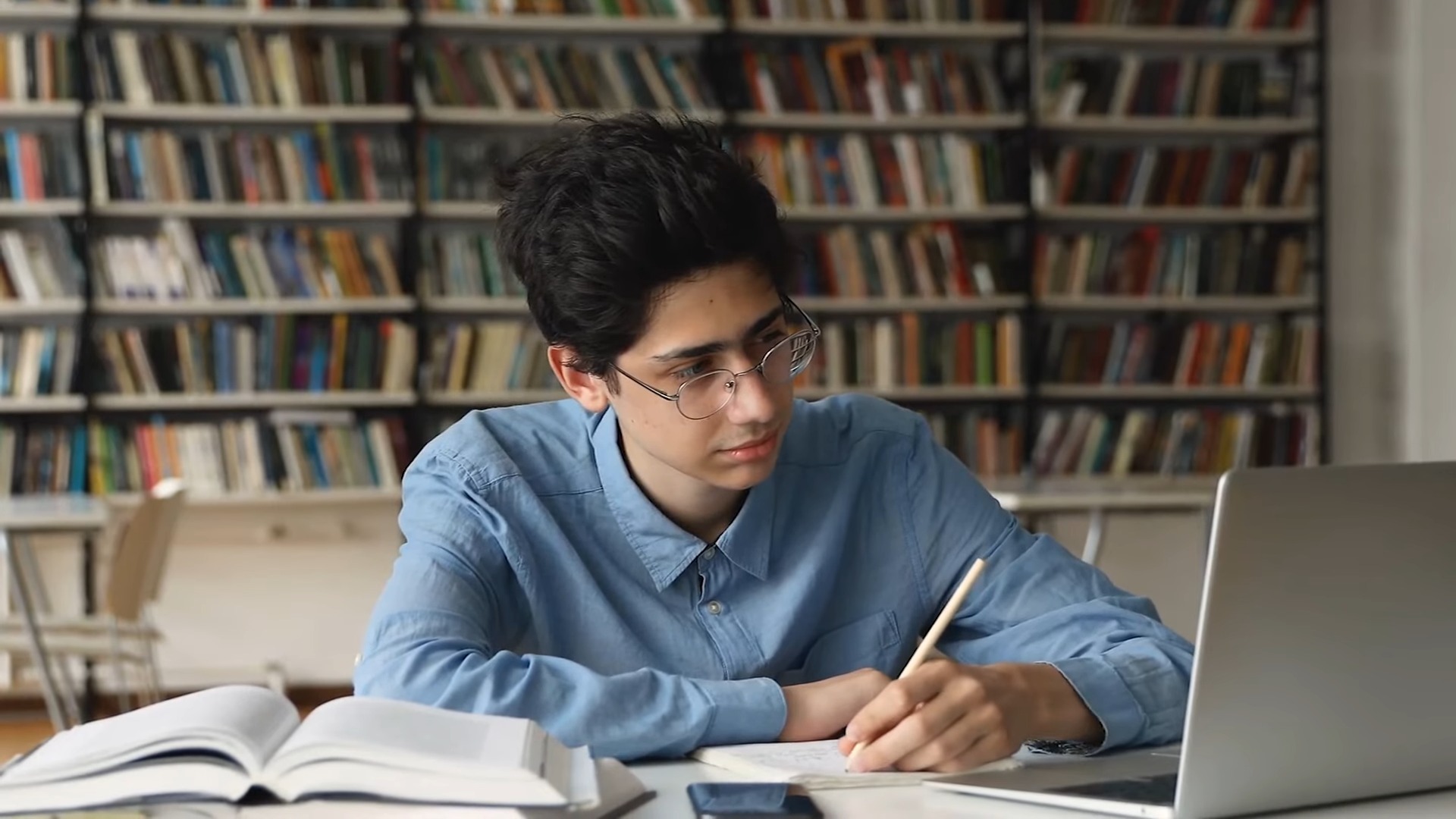One of the most telling (and important) measures of a nation’s development is its education system. In developed nations, educational opportunities are plentiful and affordable, and most adults are literate and have at least a basic high school education.
These countries have a high chance of ranking among the smartest countries in the world. By comparison, in still-developing nations, literacy rates and the number of people who have completed high school both tend to be lower.
Underdeveloped and least developed nations typically have the lowest literacy rates and offer the lowest quality educational programs—in fact, many people in these nations may not have access to education at all.
Education Levels Explained
While each country has its own educational system, most conform to the International Standard Classification of Education scale, which makes it possible to compare various countries’ educational systems to one another.
A country’s education levels are usually broken down into three tiers: below upper secondary (preschool up to high school), upper secondary (high school), and tertiary (college/university onward).
Below Upper Secondary Education
According to UNESCO Below upper secondary education covers three phases on the International Standard Classification of Education scale, starting with preschool and ending around the time the student has undergone roughly 6-8 years of primary classroom instruction (sixth to eighth grade in the U.S. system).
This phase is crucial as it lays the foundation for a student’s future academic endeavors.
Upper Secondary and Tertiary Education
Upper secondary education comes next and introduces more subjects as well as courses that can prepare the student for vocational education or tertiary education as says report from Science Direct. Some degree of secondary education is compulsory in most countries.
The path then splits, with some students entering the workforce and others moving on to vocational training (trade schools) or other tertiary (higher) education such as certificate programs, degree programs (Bachelor’s, Master’s, Doctorate).
Which Countries Are the Most Educated Countries in The World?
According to a 2017 UNESCO report, the number of students worldwide attending higher education institutions increased from 100 million in 2000 to 207 million in 2014.
But which countries are the most educated? This is not as easy a question to answer as one might hope, because “most educated” is an imprecise term.
For example, which would be considered more educated: A country in which 50% of the residents have completed secondary education and 25% have attained a tertiary degree, or one in which 100% of residents have completed secondary education but none have a tertiary degree?
OECD’s Analysis
According to the Organization for Economic Cooperation and Development, or OECD, which released its list of the world’s most educated countries in 2018:
- Canada — 56.27%
- Japan — 50.50%
- Israel — 49.90%
- South Korea — 46.86%
- United Kingdom — 45.96%
- United States — 45.67%
- Australia — 43.74%
- Finland — 43.60%
- Norway — 43.02%
- Luxembourg — 42.86%
The OECD list compares the percentage of each country’s residents ages 25 to 64 who have completed some form of tertiary education: a two-year or four-year degree or a vocational program.
Generational Comparison
According to the OECD 2021 data:
| Ranking | 55-64 year-olds | % | 25-34 year-olds | % |
|---|---|---|---|---|
| 1 | Russia | 50.3 | South Korea | 69.8 |
| 2 | Canada | 50.0 | Canada | 64.4 |
| 3 | Israel | 46.1 | Russia | 62.1 |
| 4 | Japan | 44.5 | Japan | 61.5 |
| 5 | United States | 44.3 | Ireland | 58.4 |
The Importance of Education
Global Partnership for Education, says that education plays a crucial role in human, social, and economic development. Education can promote gender equality, reduce child marriage, promote peace, and increase a person’s chances of having a healthy life.
The Global Partnership for Education considers education to be a human right, one that grants every person more opportunities in life, such as employment opportunities, better health, and the ability to participate in the political process.
Top 10 Most Educated Countries (2021 OECD data)
- South Korea: 69% 🇰🇷
- Canada: 66% 🇨🇦
- Japan: 65% 🇯🇵
- Ireland: 63% 🇮🇪
- Luxembourg: 63% 🇱🇺
- United Kingdom: 57% 🇬🇧
- Lithuania: 57% 🇱🇹
- Netherlands: 56% 🇳🇱
- Norway: 55% 🇳🇴
- Australia: 54% 🇦🇺
Most Educated in 2024
10. Sweden: A European Beacon of Education
Sweden, nestled in the heart of Europe, is renowned for its top-tier education and robust research infrastructure.
As of 2022, a commendable 48.5% of Swedes aged between 25 and 64 have achieved tertiary education. This accomplishment places Sweden in the tenth position among the globe’s most educated nations.
Swedish Education Landscape
Sweden’s commitment to quality education is evident in its impressive statistics. Nearly half of its adult population, specifically those between 25 and 64, have pursued and completed tertiary education, underscoring the nation’s emphasis on higher learning.
Global Recognition
Sweden’s educational prowess isn’t just limited to its borders. The country’s reputation for academic excellence resonates globally, making it a sought-after destination for international students and researchers.
9. United States: The Land of Innovation
The United States, a global powerhouse, is at the forefront of pioneering research and innovation says the report of USAID.
With universities that are the envy of the world, it’s no surprise that 50% of its population, within the age bracket of 25 to 64, have attained tertiary education.
American Educational Excellence
The U.S. has always been a magnet for global talent, with its universities heavily investing in groundbreaking research and innovation. This dedication to academia explains the impressive statistic that half of its mid-aged population has a tertiary education.
Corporate Giants and Education
Prominent companies like Meta Platforms, NVIDIA Corporation, and Microsoft Corporation not only drive innovation but also champion educational initiatives. These giants offer extensive training and educational programs, further elevating the U.S.’s educational stature.
8. Israel: The Knowledge Hub
Israel, with its rich history and modern advancements, boasts an impressive 50.6% of its population aged 25 to 64 having completed tertiary education, marking its spot among the top educated countries in 2024.
Israel’s Academic Achievements
Almost 51% of Israelis in the specified age group have pursued higher education, reflecting the nation’s commitment to academic excellence and its emphasis on knowledge acquisition.
A Global Academic Player
Israel’s educational system, combined with its innovative spirit, makes it a global contender in the academic arena, attracting students and researchers from around the world.
7. United Kingdom: The Legacy of Learning
The United Kingdom, with its illustrious history of academic excellence, sees over half of its population, precisely 51.3% of those aged 25 to 64, having achieved tertiary education.
UK’s Educational Eminence
The UK has been a beacon for global students, with its universities and colleges being synonymous with quality education. This dedication to learning is evident in the significant percentage of its population achieving higher education.
A Global Academic Destination
The allure of the UK’s educational institutions is undeniable. With a rich academic legacy and modern research facilities, the UK continues to be a preferred destination for students worldwide.
6. Luxembourg: The Jewel of Europe
Luxembourg, known for its high living standards, also shines in the educational domain. In 2022, 51.5% of its population, between the ages of 25 and 64, have accomplished tertiary education, ranking it sixth globally.
Luxembourg’s Educational Landscape
With almost 52% of its mid-aged population having tertiary education, Luxembourg’s commitment to academic excellence is evident. The nation’s focus on higher learning has made it a standout in the global educational scene.
A Blend of Luxury and Learning
Luxembourg, apart from its opulence, is also recognized for its educational prowess. The country’s emphasis on quality education resonates with its global reputation, making it a sought-after destination for international students.
5. Australia: Down Under’s Educational Prowess
Australia, with its diverse culture and rich natural beauty, also stands tall in the realm of education. As of 2022, a remarkable 51.5% of Australians between the ages of 25 and 64 have secured tertiary education, placing the nation fifth on the global education leaderboard.
Australia’s Academic Landscape
Australia’s dedication to higher learning is evident in its impressive statistics. With over half of its adult population achieving tertiary education, the country showcases its commitment to fostering an educated and skilled populace.
A Global Educational Destination
Australia’s world-class universities and inclusive educational policies make it a magnet for international students. The nation’s emphasis on research, innovation, and holistic learning ensures that it remains a top choice for global academic pursuits.
4. Korea: The Eastern Beacon of Learning
Korea, with its rich cultural heritage and technological advancements, boasts an impressive 52.8% of its population, aged between 25 and 64, having completed tertiary education. This commitment to academia solidifies Korea’s position as a leading educational hub in the East.
Korea’s Educational Achievements
Korea’s emphasis on education is deeply rooted in its cultural values. With nearly 53% of its specified age group having pursued higher education, the nation reflects its dedication to knowledge and skill development.
A Blend of Tradition and Modernity
Korea seamlessly merges its traditional values with modern educational methodologies. With a literacy rate of 99% as of 2018, the country stands as a testament to the power of education and its transformative impact on society.
3. Ireland: The Celtic Center of Education
Ireland, known for its lush landscapes and rich history, also shines brightly in the educational domain. With 54.4% of its population, between the ages of 25 to 64, having achieved tertiary education, Ireland proudly claims the third spot among the world’s most educated countries.
Ireland’s Academic Excellence
Ireland’s commitment to education resonates in its impressive statistics. The nation’s focus on higher learning, combined with its globally recognized universities, makes it a hub for academic excellence and research.
A Global Academic Magnet
Ireland’s welcoming nature and top-tier educational institutions make it a preferred destination for students from around the world says IDP Education. The country’s emphasis on research, innovation, and holistic learning ensures that it remains at the forefront of global education.
2. Japan: The Land of Rising Knowledge
Japan, renowned for its technological innovations and rich cultural heritage, stands second in the global education rankings. A commendable 56.1% of Japanese individuals aged between 25 and 64 have completed tertiary education, showcasing the nation’s unwavering commitment to academia.
Japan’s Educational Landscape
As I read on OECD report that Japan’s dedication to education is deeply embedded in its societal values. The nation’s emphasis on discipline, hard work, and continuous learning has resulted in over half of its adult population achieving higher education.
A Blend of Tradition and Innovation
Japan’s educational system harmoniously integrates its age-old traditions with modern pedagogical techniques. The country’s focus on technology, research, and innovation ensures that it remains a global leader in education and development.
1. Canada: The Northern Star of Education
Canada, with its diverse landscapes and multicultural fabric, tops the list of the most educated countries in 2024. An astounding 62.7% of Canadians, aged between 25 and 64, have attained tertiary education, reflecting the nation’s unparalleled commitment to higher learning.
Canada’s Academic Achievements
Canada’s emphasis on inclusive and quality education is evident in its impressive statistics. The nation’s world-class universities, combined with its student-friendly policies, make it the epitome of academic excellence.
A Global Beacon of Learning
Canada’s welcoming nature, combined with its top-tier educational institutions, attracts students from all corners of the globe. The country’s dedication to research, innovation, and holistic development ensures that it remains a shining star in the global educational arena..
- Also be sure to check out our article on a similar topic, Most Educated Cities in US.
FAQ
Who is the most educated man in the world in 2024?
Zhou Baokuan, a Chinese national, is considered one of the most educated people in the world in 2024, with 10 degrees in total.
Which country in Europe has the best education system?
Germany is recognized as having one of the best education systems in Europe in 2024.
Which country has the hardest education?
Countries like South Korea and Finland are often cited for their rigorous education systems, but the definition of “hardest” can vary based on criteria.
Who is the man with 5 PhDs?
Dr. Abdul Karim Bangura holds 5 PhDs, making him one of the most educated individuals in the world.
Do higher education rates correlate with a country’s economic prosperity?
Generally, countries with higher education rates tend to have better economic growth, but there are exceptions.
How does online education impact these rankings?
With the rise of online education, more individuals have access to tertiary education, potentially impacting future rankings.
Final Words
Education remains a cornerstone of societal progress and individual achievement. As the world evolves, the criteria for being “most educated” might shift, but the intrinsic value of learning remains constant. Nations that prioritize education today are investing in a brighter, more prosperous future for all.




















